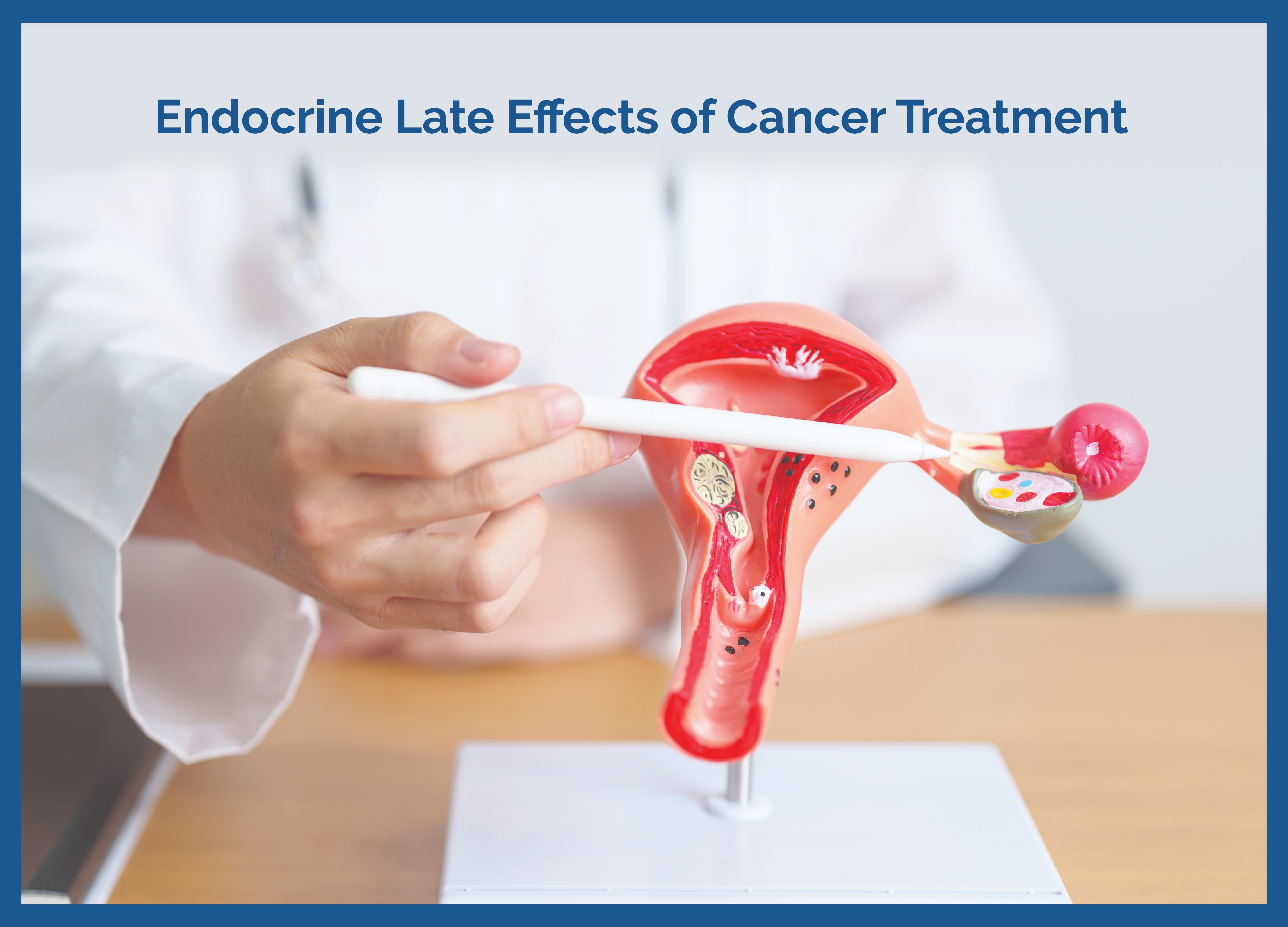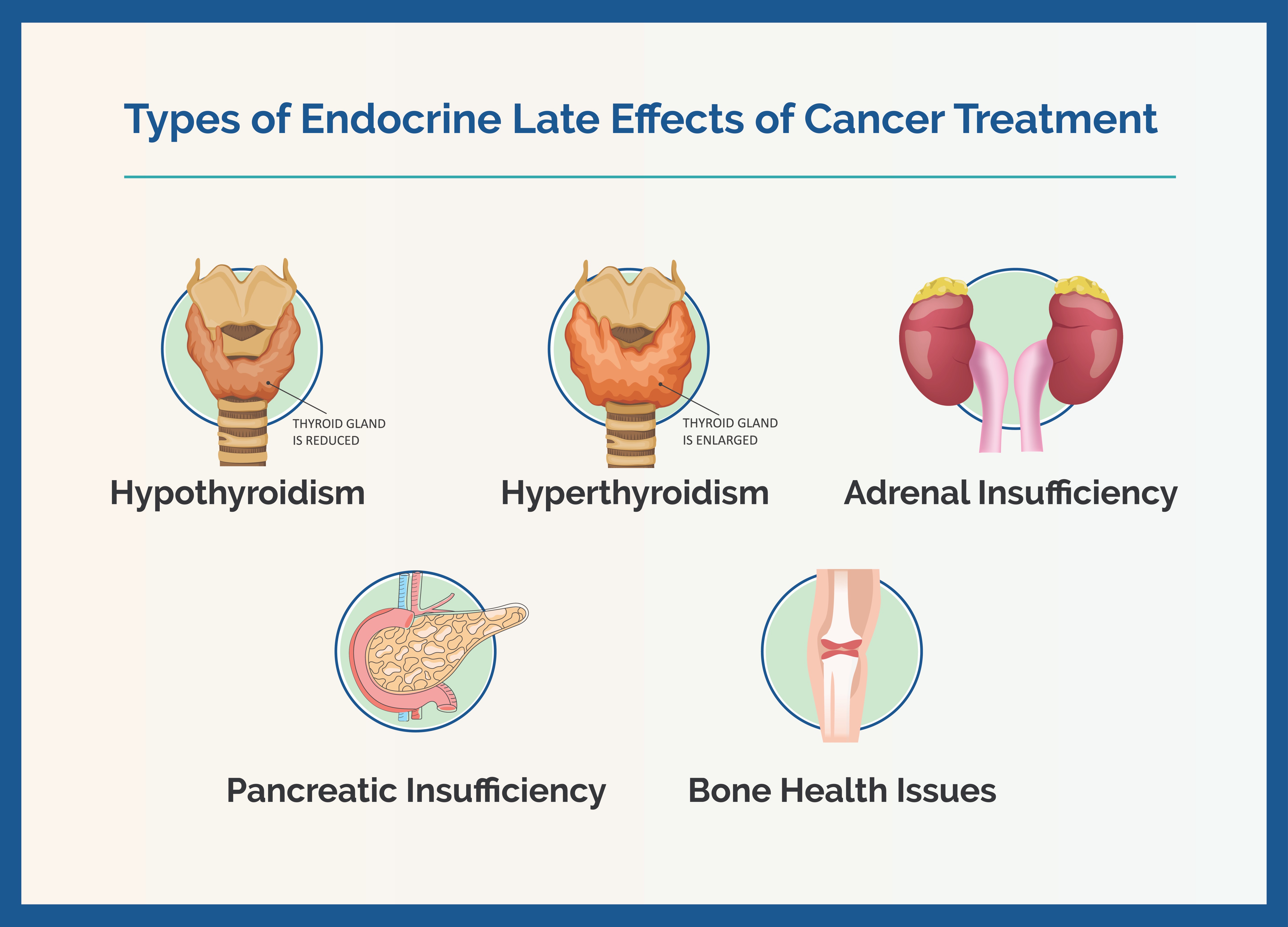Frequently Asked Questions (FAQs) about
Endocrine Late Effects of Cancer Treatment:
How common are endocrine late effects after cancer treatment?
Endocrine late effects can occur in a significant portion of cancer survivors, depending on the
treatment type and intensity.
Can endocrine late effects develop years after cancer treatment has ended?
Yes, some effects may manifest months to years after treatment completion, due to cumulative
damage to endocrine organs.
Are there screening tests to detect these late effects early?
Yes, periodic blood tests, imaging studies, and hormone level assessments can help detect these
effects early, enabling timely intervention.
Can hormone replacement therapy help manage these effects?
Hormone replacement therapy is often used to manage symptoms and maintain quality of life
for survivors experiencing endocrine late effects.
How can cancer survivors reduce their risk of developing endocrine late effects?
Regular follow-up with healthcare providers, lifestyle modifications (like maintaining a healthy
weight and exercise), and adhering to recommended screening guidelines can help reduce risks.
What should cancer survivors discuss with their healthcare team regarding endocrine late effects?
It's crucial to discuss any symptoms or changes in health, adherence to follow-up care, and
potential strategies for managing late effects to optimize long-term health.

